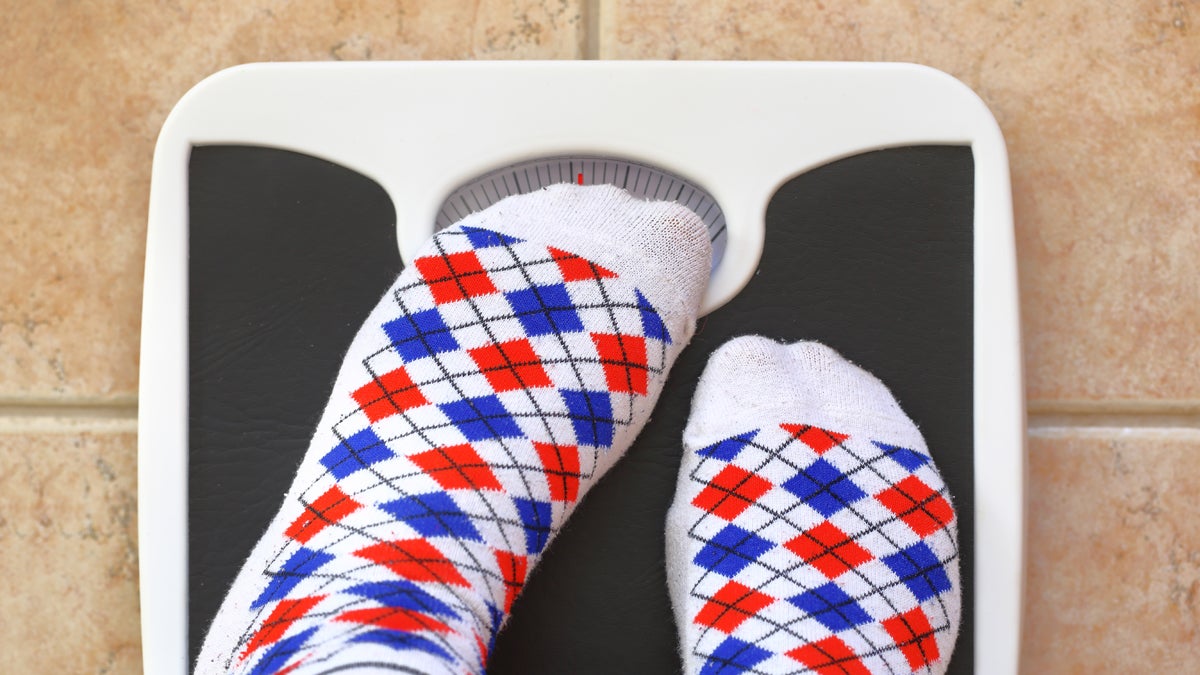New Jersey slimmer than Delaware and Pennsylvania

(Photo via ShutterStock)
New Jersey, Pennsylvania and Delaware, just got a new obesity report card from the government.
A person with a body mass index (BMI) of 30 or more is considered obese, having an excessively high amount of body fat in relation to lean body mass.
New Jersey is doing best in our three-state region, but has an obesity rate near 27 percent for adults. According to estimates from the Centers for Disease Control and Prevention, in Pennsylvania 30.2 percent of adults are obese. Delaware’s rate is 30.7 percent.
The Trust for America’s Health and the Robert Wood Johnson Foundation analyzed the government data in a new report.
In recent years, many anti-obesity efforts in the Garden State focus on kids.
“I’ve had kids who come in who are 8-years-old and 200 pounds, we are dealing with kids who are at such a weight that they are unable to just play,” said Alexia Clarke, coordinator of Steps for Kids, an obesity treatment program at the Inspira Health Network in South Jersey.
A pediatrician refers a patient, then the child, parents and siblings work on nutrition and exercise for three and half months.
The best results happen when an entire family participates.
“If the parents come with just one child, and the rest of the family is home, sometimes it’s a challenge, sometimes the child feels singled out, sometimes the parents feels like this is more work on top of what I have to do,” Clarke said.
The program used to have a 60 percent drop out rate. Now it’s about 30 percent. Instead of weekly, two-hour sessions, families now commit to gather every other week. On the off-week they get a surprise phone call from a nutritionist who checks in on family meals.
Clarke says it also takes counseling and coaching to change a whole family’s habits.
“There’s something to the power of whining and demanding, that unending drone in your ear, where parents are tired and they just want the simplest fix we face a lot of that; empowering parents to make the healthy choices and trying to help kids to want the healthy choices,” Clarke said.
The program doesn’t try for rapid weight loss. It helps children stop gaining pounds, and as they grow older and taller they can often achieve a healthy weight, Clarke said.
The New Jersey Partnership for Healthy Kids is working to slow obesity across the state by transforming communities.
“This is about environment change, this is about improving the parks, sidewalks, so activity is apart of their daily life, and part of their surroundings,” said Darrin Anderson, the partnership’s state deputy director.
Lisa Scheetz, chief operations for the Cumberland-Cape-Atlantic YMCA, says about 40 percent of children in Vineland, New Jersey are overweight or obese.
The city is working on the problem with a government grant and she’s especially proud of the healthy corner stores program — that offers healthier options — including fresh fruit and water — to kids who stop by before and after school for a snack.
WHYY is your source for fact-based, in-depth journalism and information. As a nonprofit organization, we rely on financial support from readers like you. Please give today.

